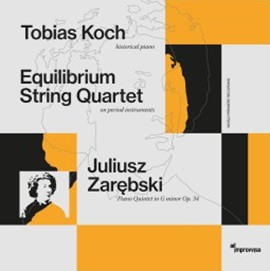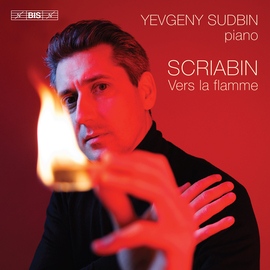Als Evgeny Sudbin 2006 ein erstes Scriabin-Album veröffentlichte schrieb ich: « Das ist genuiner Scriabin, ein musikalisches Zeugnis seiner extravaganten Welt. Und entsprechend entwickelt sich dann das Anhören der SACD wie ein sinnliches Erlebnis der ganz besonderen Art, die in dem perfekt gesteigerten, bedrohlich-ekstatischeren Rausch der spektakulären ‘Messe Noire’ ebenso einen Höhepunkt erreicht wie in den traumhaften Stücken ‘Nuances’ oder ‘Poème’ oder der exquisit eleganten ‘Valse’. »
Das neue Album steht dem in nichts nach. Ein Höhepunkt ist gleich die Interpretation der 4. Sonate mit ihrem zunächst sehr verträumten, dann sehr heftig irdischen Andante, dem Sudbin danach ein ganz anders geartetes, trotz des Prestissimo direkt schwebendes Spiel gegenüberstellt. Inmitten der Präludien und Etüden macht die Fantasie in h-Moll aus dem Jahre 1900 ihrem Namen alle Ehre. Sudbin kann das leidenschaftliche Drama dieser Musik mit den enormen Herausforderungen der miteinander kommunizierenden Stimmen packend zum Ausdruck bringen.
Dieses Umgarnen von Motiven gelingt dem Pianisten auch ganz aufregend im Poème op. 32.1. Die nervös wallende Etüde op. 42.1 führt zur 10. Sonate mit ihren changierenden Rhythmen in einer Musik, die sozusagen schon nicht mehr von dieser Welt ist. Bei Sudbin beginnt die Sonate neblig impressionistisch, ehe die Musik mit phänomenalen Klangkolorationen heller schimmert, mit denen uns Sudbin tief in die Phantasiewelt des Komponisten mitnimmt, in der die kontinuierlichen Triller die geistige Erregung vermitteln.
Danach beendet Prélude et Nocturne das Programm mit einem Anflug von Melancholie und lässt uns voller Verwundung zurück, unendlich dankbar für 78 Minuten Musikerleben höchster Qualität.
When Evgeny Sudbin released his first Scriabin album in 2006, I wrote: « This is genuine Scriabin, a musical testimony to his extravagant world. And accordingly, listening to the SACD develops like a sensual experience of a very special kind, reaching a climax in the perfectly heightened, menacingly ecstatic frenzy of the spectacular ‘Messe Noire’ as well as in the dreamlike pieces ‘Nuances’ or ‘Poème’ or the exquisitely elegant ‘Valse’. »
The new album is in no way inferior. The interpretation of the 4th Sonata is an immediate highlight with its initially very dreamy, then very fiercely earthly Andante, which Sudbin then contrasts with a completely different kind of playing that floats despite the prestissimo character of the music. Amidst the preludes and etudes, the Fantasy in B minor from 1900 lives up to its name. Sudbin is able to grippingly express the passionate drama of this music with the enormous challenges of the communicating voices.
The pianist also succeeds in this entanglement of motifs in the Poème op. 32.1 in a very exciting way. The nervously flowing Etude op. 42.1 leads to the 10th Sonata with its changing rhythms in a music that is, so to speak, no longer of this world. Sudbin’s sonata begins in a misty impressionistic manner before the music shimmers brighter with phenomenal sound colorations, with which the pianist takes us deep into the composer’s fantasy world, in which the continuous trills convey the spiritual excitement.
Afterwards, Prélude et Nocturne ends the program with a touch of melancholy and leaves us wounded, infinitely grateful for 78 minutes of musicianship of the highest quality.























